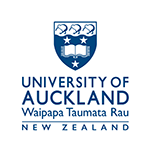Whakatakinga: Ngā take mō te whakaaro anō i te aromatawai
Why rethink assessment?
Even prior to the COVID-19 pandemic, universities worldwide acknowledged the need to rethink assessment. Many assessment practices have barely changed for decades, but students’ expectations have changed dramatically, and traditional forms of assessment no longer match the skills students need for the modern world (Rapanta, et al., 2021, Bearman et al., 2020, Lucas, 2021, Selwyn, 2014).
The pandemic had us rapidly move assessments online, highlighting challenges of equity and inclusion, and exacerbating the threat of academic misconduct. Added to these pressures is the need to find robust, reliable, equitable and valid forms of online assessment that maximise critical thinking, employability, authentic skills such as teamwork and ‘grit,’ digital literacy and global citizenship, all for increasingly large classes and without adding to already challenging workloads.
A focus on final summative examinations not only raises student stress levels but is usually poorly aligned to the learning activities experienced during the course and fails to measure ongoing personal development.
“High-stakes assessment is having a damaging impact on the health and wellbeing of students, and it is not giving universities, colleges, or employers the kind of information they want. Assessment is out of sync with curriculum and pedagogy… we need nothing less than a paradigm shift …” (Lucas, 2021, p. 2)
In Rapanta et al. (2021), the authors urge educators to change the focus, from the traditional one-time snapshot (the exam or test) to the ongoing collection of evidence (through coursework), and to “focus on the kinds of epistemic games that are core to your discipline or profession … examine the capabilities that are involved in ‘playing’ them successfully. What experiences would benefit students who need to learn to play those games? What are the rules of the game, the typical tools and instruments, the typical moves, and so on?”
JISC’s resources on transforming assessment and feedback (JISC, 2015) highlight several issues in common practice, including the following:
- Modular programmes are often assessed by individual modules and not at the programme level. This encourages students to view assessments as isolated events rather than a developing progression. This makes it difficult to assess “outcomes that focus on slowly-developed, complex, and high order skills and understanding.”
- We frequently over-assess, with negative effects on staff and student workload. We also tend to forget that students are studying more than one course – so that over-assessing, and/or conflicting assessment timelines can have a cumulatively negative effect.
- Lack of clarity—expectations for assessments are not made sufficiently clear. Students need opportunities for practice, to engage deeply with the criteria and to know what good work looks like. See the section on writing assessment criteria and rubrics.
- Feedback is not provided in a useful and timely manner. See the section on feedback, and JISC pages on feedback and feed forward.
- Students’ self-reflection and self-regulating skills are under-developed and under-emphasised. We can help students develop these skills with a much more relational focus, in keeping with ako, (both teaching and learning) as a reciprocal relationship between the student and the teacher.
Collaborative groupwork as summative assessment is under-used for many good reasons—badly designed tasks and unprepared students can lead to a poor experience for both students and staff—yet working as part of a team is a necessary skill for many professional roles. How can we make groupwork more effective and more attractive, and support it adequately? How can we make this scaleable? These and many other questions will be explored in these resources.
With the new directions set out by Taumata Teitei and the developing Toitū Waipapa (Waipapa Framework), our University’s commitment to Te Tiriti o Waitangi, as well as the ongoing work in the Curriculum Framework Transformation Programme, it is essential that our assessment practices reflect our University’s principles and values.
Te Ao Māori Principles (Taumata Teitei, p. 3)
- Manaakitanga: Caring for those around us in the way we relate to each other.
- Whanaungatanga: Recognising the importance of kinship and lasting relationships.
- Kaitiakitanga: Valuing stewardship and guardianship and our relationship with the natural world.
Our Values (Taumata Teitei, p. 3)
- Respect and integrity
- Excellence
- Service
Throughout the six themes of rethinking assessment, we will draw links to these principles and values.
We will also relate each theme back to the core capabilities of TeachWell@UoA and the University of Auckland’s principles of assessment.
Additional resources
- JISC report – The future of assessment: five principles, five targets for 2025
- The Future of Assessment and Feedback – online conference held in 2021, organised by European University Information Systems.
- JISC experts group meeting on Assessment, November 2021
References
Bearman, M., Dawson, P., Ajjawi, R., Tai, J. & Boud, D. (2020). Re-imagining university assessment in a digital world. https://doi.org/10.1007/978-3-030-41956-1
JISC. (2015). Assessment design. Transforming assessment and feedback with technology (p. 14). https://www.jisc.ac.uk/guides/transforming-assessment-and-feedback/assessment-design
Lucas, B. (2021). Rethinking assessment in education: The case for change. CSE Leading Education Series, 2. https://www.researchgate.net/publication/350887830_Rethinking_assessment_in_education_The_case_for_change_CSE_LEADING_EDUCATION_SERIES
Nicol, D. (2007). Principles of good assessment and feedback: Theory and practice. From the REAP International Online Conference on Assessment Design for Learner Responsibility, 29th-31st May, 2007. https://www.reap.ac.uk/reap/public/Papers/Principles_of_good_assessment_and_feedback.pdf
Rapanta, C., Botturi, L., Goodyear, P., Guàrdia, L., & Koole, M. (2021). Balancing technology, pedagogy and the new normal: Post-pandemic challenges for higher education. Postdigit Sci Educ 3, 715–742. https://doi.org/10.1007/s42438-021-00249-1
Selwyn, N. (2014). Digital technology and the contemporary university: Degrees of digitization. London: Routledge.
